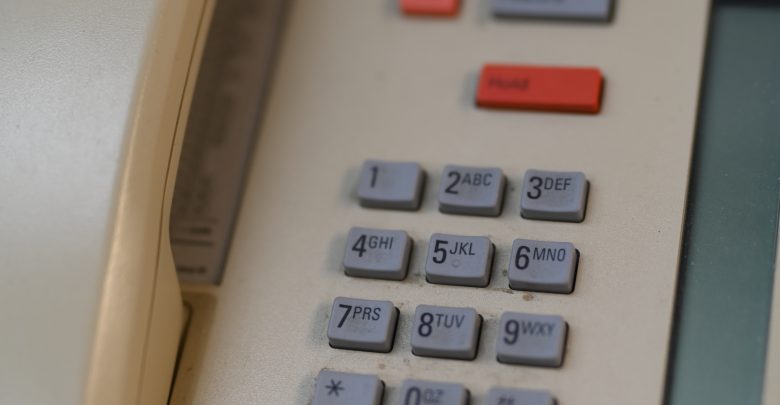Missouri’s 988 hotline saw 900 more calls than expected for this time of year

JEFFERSON CITY, Mo. – Nearly a thousand Missourians called the National Suicide Prevention Lifeline in the past month since 988 went live in the middle of July.
The three-digit number was designed to make it easier to connect you with counselors to help in a time of need. Suicide numbers are on the rise in the Show-Me State for both veterans and civilians, which has lawmakers asking what more does the state need to offer.
“Missouri constantly has higher than the national average, age-adjusted, suicide rates as well as higher than average veteran suicide rates,” said Stacey Williams, suicide prevention coordinator for the Department of Mental Health. “Suicide is the 11th leading cause of death overall in Missouri and it is the third leading cause of death among 10 to 17-year-olds and 25 to 34-year-olds.”
In 2019, of the 1,130 suicides in the state, 188 of them were among veterans, ranking Missouri in the top ten in the nation. The House Interim Committee on Veterans Mental Health and Suicide met Wednesday for a second time this summer to discuss the state’s veteran suicide rate is 43.4 when the national average is 31.6, according to the U.S. Department of Veteran Affairs.
“I’ve had many people I know at Whiteman Air Force Base kill themselves,” said Lt. Col. Timothy Sullivan, retired B-2 squadron commander at Whiteman Air Force Base. “Just a few weeks ago, maybe a month ago, another killed himself. As well as in 2018, Whiteman Air Force Base was the number one base in the military that had the highest suicide rate here in Missouri.”
According to the Department of Health and Senior Services (DHSS), in 2020 there were 1,125 suicides in Missouri. One year later in 2021, that number increased to 1,176. The new number is expected to decrease hospitalizations.
The new three-digit number, 988, went live on July 16. From the time the number went live until the beginning of August, the Department of Mental Health (DMH) says there have been 900 calls more than what’s normal for that time of year.
“988 is for anyone, but if you’re a veteran, service member, or a loved one, you can call 988 and then press 1 to reach a qualified VA [veterans affairs] responder,” said Casey Muckler, Missouri’s 988 state lead. “We do expect to receive about 253,000 contacts in the first year, which includes calls, texts, and chats, about four times the volume that we’ve been receiving in past years.”
Of that 253,000, she expects 68% to be phone calls, the rest will be texts and chats.
DMH oversees the state’s contract with the national hotline. Last month, the three-digit number went live in all 50 states. Missouri will have six different call centers. When you call 988, you will be routed to the closest call center based on your area code. The following health centers respond to different regions of the state.
- Behavioral Health Response – northeast and southeast Missouri, including St. Louis County and City
- Burrell Behavioral Health – central and pieces of southwest Missouri, including Columbia and Branson
- CommCARE – northwest Missouri, including Jackson County
- Compass Health – throughout central Missouri, including Lake of the Ozarks, St. Charles County, and Cass County
- Ozark Center – southwest Missouri, including Joplin
- Provident Behavioral Health – southwest Missouri, including Dad, Lawrence, and Barry counties.
DeafLEAD is the center that monitors text and chats. The text and chats aim to reach younger Missourians and people with disabilities. Missouri is also home to two backup crisis centers, meaning if other states are overwhelmed with calls, callers will be routed to the Show-Me State. Those locations are Provident Behavioral Health and Behavioral Health Response.
The hope is that 988 will decrease law enforcement involvement.
“Jails have become the fallback dependent mental health centers for which they are completely unprepared,” said Rep. Mike Stephens, R-Bolivar. When you call or text 988, you will be connected with a crisis specialist who is trained to deliver support. During that conversation, the specialist will make an assessment on if a future follow-up or referral is needed. If higher care is needed, the responder will either dispatch a mobile response unit or recommend that person seek care at a behavioral health center.
“We anticipate to be able to keep many more people safe in their communities and prevent a situation from escalating to need a higher level of care,” Muckler said. “The purpose of 988 is to quickly connect someone in crisis to someone they can talk to for support and get them connected to our behavioral health system of care.”
Muckler said there are 10 behavioral health centers in the state, but more are on the way. She said 988 in Missouri was recently awarded a great from the Substance Abuse and Mental Health Services Administration (SAMHSA) that will be used to connect with veterans or their loved ones if they don’t press 1 after 988.
“We do have a plan to know what that process is going to look like to ensure that we are getting them the resources that they need,” Muckler said. “Because 988 is confidential, it would really be up to the veteran or family member if they would like to be referred but we always give resources for that person.”
Back in 2020, Missouri lawmakers approved legislation known as the “Buddy Check 22 Day.” On the 22nd of every month, the state asks Missourians to pick up the phone or check in on a veteran they know.
The Missouri Veterans Commission does offer an online website with a list of resources for military members, both active and past, and their families. In 2020, the National Suicide Lifeline received nearly 2.4 million crisis calls across the state. You can still reach the hotline by calling 1-800-273-8255.



